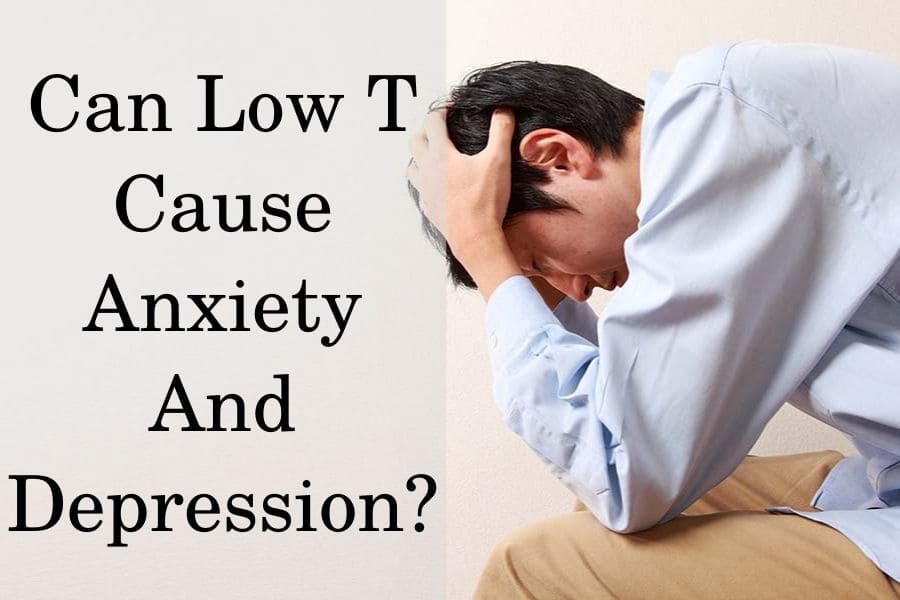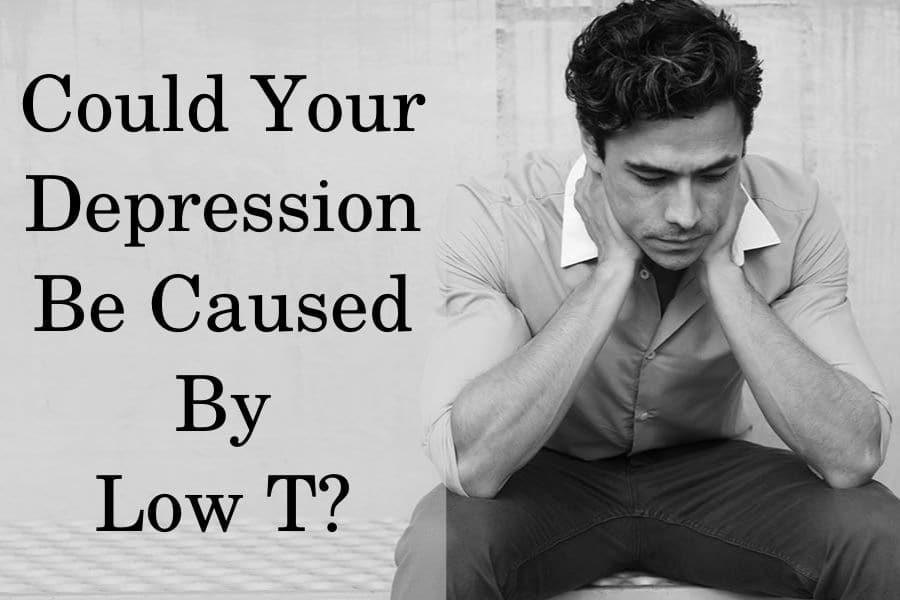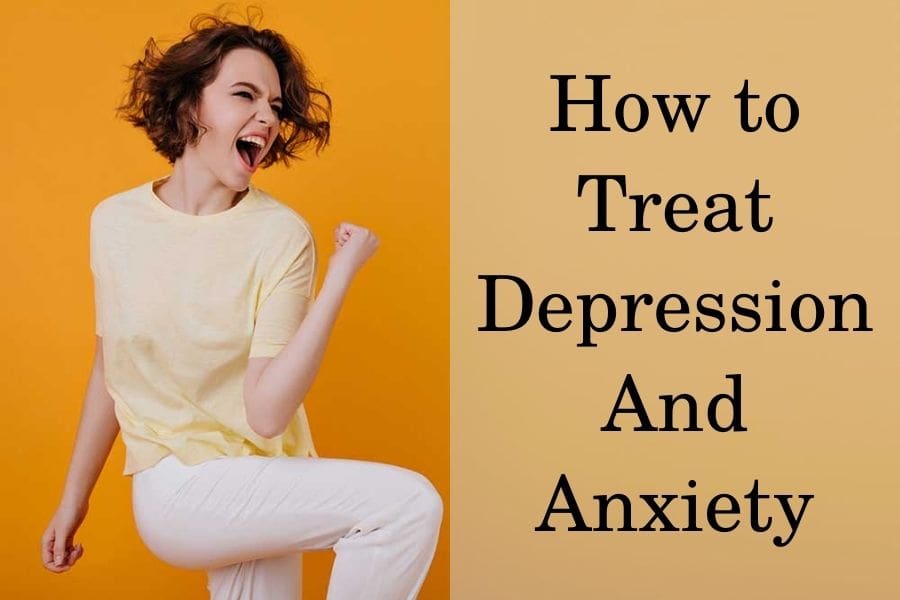Anxiety and depression are two of the most underdiagnosed psychological problems associated with low testosterone. The male sex hormone affects several neurotransmitters in the brain which control mood, emotions, and cognition.
Therefore, problems with hormones are often the underprint for psychological symptoms such as depression, anxiety, irritability, and mood swings.
Men with low T also complain of fatigue, difficulties concentrating, and brain fog, which further worsens their productivity and quality of life.
If you are experiencing any form of emotional distress, please contact SAMHSA’s National Helpline or National Suicide Prevention Lifeline and you can receive free and confidential support.
How does low T affect mental health?
Low testosterone (hypogonadism) can have a negative effect on the chemical processes in the brain. Those processes are mediated by neurotransmitters such as serotonin, dopamine, and gamma-aminobutyric acid (GABA).
They work by triggering specific receptors in your brain which can affect your mood, emotions, and cognitive abilities.
Serotonin mediates satisfaction and happiness, and in the case of depression, increasing its levels may alleviate the symptoms. Therefore it is a common target for anxiolytic and antidepressant medications.
Hormones such as testosterone also appear to affect its levels. A trial with 41 men reveals that higher T levels correlate with higher serotoninergic tonus in the brain.
Thus, men with low T may have reduced serotonin activity, which leads to depressive symptoms
Furthermore, testosterone stimulates dopamine production in the brain. Dopamine is another mediator with a role in psychological diseases. Low T may reduce the levels of dopamine which leads to a lack of motivation and interest as well as depressive mood.
GABA is an inhibitory neurotransmitter that induces a calming, relaxing effect on the nervous system.
Also, testosterone has a positive effect on the sensitivity of its receptors and thus, hypogonadism may increase the risk for anxiety symptoms. The neuroendocrine changes in hypogonadism can also cause mood swings and cognitive problems.
Other common symptoms in men with hypogonadism include chronic fatigue, difficulties concentrating, erectile dysfunction, and lack of sexual desire. In fact, fatigue is the most common symptom of low T.
Low T in women may also cause fatigue, mood swings, and low libido. The condition usually occurs during menopause. However, evidence is inconclusive whether or not low T in females can cause depression.
Can low testosterone cause anxiety?
Evidence confirms that low T is linked to anxiety. A study compared self-reported anxiety levels in 39 hypogonadal men and 40 healthy participants and revealed that the patients with low T had significantly higher anxiety scores.
Furthermore, their symptoms improved dramatically after 6 months of testosterone therapy. Apart from hypogonadism, other causes of anxiety disorders may include:
- psychological trauma
- hyperthyroidism
- drug and alcohol abuse or withdrawal
- medications
- asthma
- irritable bowel syndrome
- hormone-producing tumors
Unfortunately, the symptoms of low T and anxiety disorders may overlap which makes differential diagnosis quite difficult. For example, anxiety may also be a contributor to erectile dysfunction, ED is common amongst men with this psychological condition.
Can low testosterone cause depression?
The evidence so far confirms that the underprint for a significant percentage of depression amongst men may be low T levels. Older individuals may be more susceptible compared to younger men due to the gradual decline of testosterone, as well as other social and age-related factors.
Furthermore, atypical depression is the most common form of the condition seen amongst men with low T. Other common causes of depression include:
- psychological trauma
- age-related crisis
- drug and alcohol abuse or withdrawal
- serious illnesses
- medications
How can anxiety and depression cause low T
Depression and anxiety can cause hypogonadism-like symptoms such as erectile dysfunction, low libido, chronic fatigue, mood swings, sleep problems, etc.
In some cases, intense stress related to depression or anxiety may even lead to body and facial hair loss or aggressive behavior. The few distinctive symptoms of low T in men include anemia, muscle loss, and infertility.
When it comes to diagnosis it can be extremely challenging to differentiate between clinical depression and the symptoms of low T in men.
If you suffer from any psychological complaints, make sure to visit a medical doctor who can evaluate your symptoms. Your doctor will start by performing a physical exam and running blood tests to measure your serum T levels.
The test must be performed during the morning when natural testosterone production is naturally higher. If two separate tests confirm that your total T levels are under 300ng/ml, then your symptoms are likely due to hypogonadism.
Currently, the most effective treatment to improve the symptoms of low T in men is testosterone replacement therapy (TRT).
How TRT can help with depression and anxiety
If you have depression or anxiety, your doctor will prescribe you medications such as antidepressants and anxiolytics which can ease your symptoms.
Depending on the exact drug class, these therapeutics may also affect your testosterone levels. However, the evidence so far is conflicting on whether the majority of antidepressants increase or decrease T levels.
If your depression is hormone-related, then testosterone treatment can also effectively alleviate your symptoms – either alone or in combination with antidepressants.
For example, a recent meta-analysis of all randomized trials published so far reveals that testosterone treatment alone can significantly improve psychological symptoms in hypogonadal men. The treatment was more effective with higher doses of testosterone.
Therefore, using testosterone injections may be a preferred method in terms of dosage and reliability. If injections are contraindicated, then using transdermal forms of TRT may be equally successful.
Can you take testosterone and antidepressants at the same time?
If monotherapy is ineffective, antidepressants and anxiolytics can be safely taken together with testosterone. In fact, TRT may augment the effectiveness of the standard medications in cases of treatment-resistant depression.
Usually, you will notice the first benefits of TRT on depressive symptoms and anxiety after 3-6 weeks. Studies reveal that effects reach a maximum after 4-8 months.
Unfortunately, testosterone treatment may not be as effective in treating depression in menopausal women. Females treated with testosterone fail to show improvement in psychological symptoms. Furthermore, testosterone is currently not approved for use in women.
Get a free consultation with our medical expert for any questions about hormone replacement therapy



